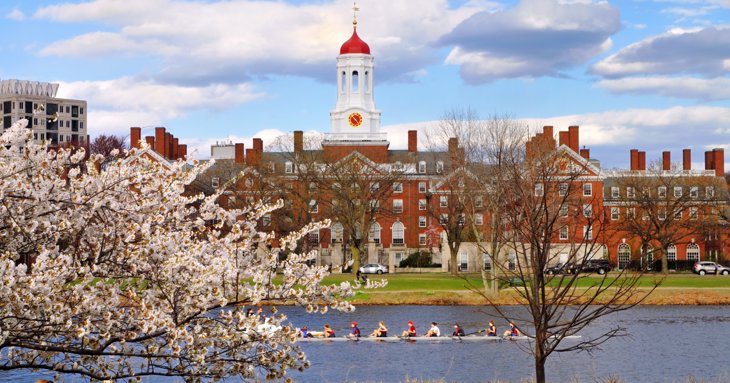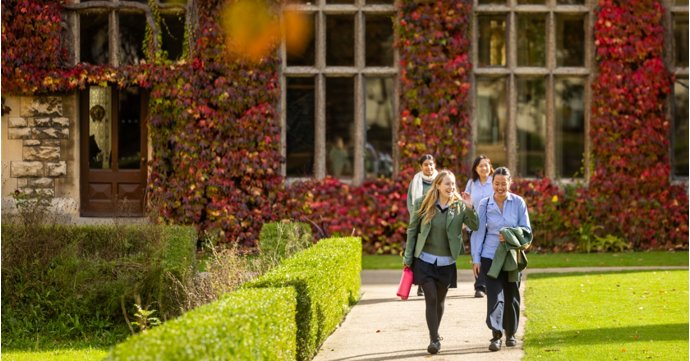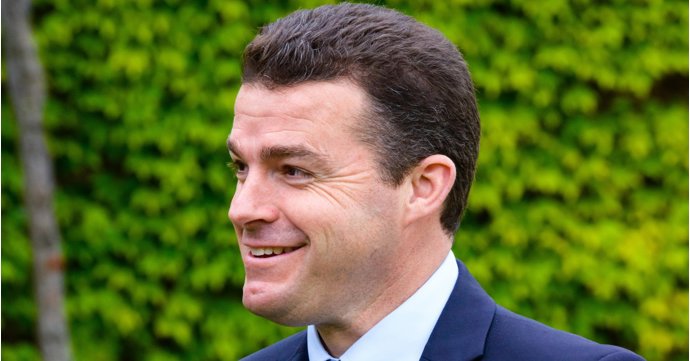With a broad and varied curriculum; a wealth of prestigious educational institutions like the world-famous Ivy League; and the opportunity to experience life on the other side of the world, attending college in the USA is an exciting prospect for many students.
Cheltenham Ladies' College provides specialist advice and support for pupils dreaming of going to college in America — its US adviser, Dr James Skinner, spoke to SoGlos to share some of the key differences between the educational system and the applications process, as well as what specialist support CLC provides to pupils applying to everywhere from Harvard and Wellesley to Stanford.
In 2022, 10 per cent of Cheltenham Ladies’ College leavers went on to study at a US college — is studying in America something more pupils are aspiring to?
An education in the US can offer students a wealth of opportunities: a broad curriculum, an international student body, high-quality research opportunities, and the chance to live in another country, on a variety of rural or urban campuses. And, of course, there's the appeal of studying at institutions that rank very highly on the international stage.
Are there any subjects in particular that are proving popular to study in the US?
To some extent, I believe that the appeal of a US education lies in its contrast with the UK system, where students commit to a specialisation upon application. In the US, there's a strong emphasis on embracing a broad educational experience.
While some students do apply with specific majors in mind, many discover upon arrival that they have the flexibility to customise their curriculum. For example, an alumna recently emailed me from Brown University in New England, brimming with enthusiasm for Brown's open curriculum. Originally intent on majoring in English, this student has since ventured into classes in Physics and Greek Philosophy. The breadth of options available to students in the US is truly exciting.
Can you tell us some of the colleges CLC pupils have gone onto?
In the last five years, 12 local day students from CLC have taken up offers from all over the US. These include the Ivy League colleges, but also stretch beyond to other prestigious institutions such as Stanford and Emory. Other offers in recent years include USC, Brown, Dartmouth, UC Berkeley, NYU, Pratt Institute, Columbia, Michigan, U Penn, and Wellesley to name a few.
How different is the process of applying to a US college, compared with a UK university?
The process of applying to the US differs significantly from that of the UK. CLC has a dedicated team of staff in the PGC (Professional Guidance Centre) who are trained to guide students through the US application process, which begins in earnest in January of Year 12.
Students typically submit their applications by either the early deadline (November 1) or the regular deadline (January 1).
Visa requirements in the US are complex, so it's crucial for students to start their research early to determine the type of visa they will need.

Do pupils need to pass both the SAT and the ACT to get a place at a US college?
No, the testing landscape has undergone significant changes since the pandemic. It used to be common for students to take either the SAT or ACT. However, many US colleges have shifted to place even greater emphasis on assessing students holistically, rather than relying solely on SAT or ACT scores to make their decisions. As a result, many US colleges have adopted a 'test-optional' policy. Numerous students this year were admitted to US colleges without taking the SAT or ACT at all.
It's worth noting that some US colleges still require students to submit SAT or ACT scores, but these are in the minority. Examples include MIT and Georgetown University.
How much does it cost to study at a US college? Is there any financial support available?
The cost of a US education can be expensive. However, funding exists for students to help finance their college education in the US. The primary aim of financial aid is to enhance accessibility and affordability for individuals who may otherwise struggle to afford the costs associated with attending college in the US.
Additionally, scholarships are available, which may be based on sports, music, or academic achievement — these are commonly referred to as merit-based scholarships. The process is a significant undertaking, as it is detailed and time consuming, but worth it if you’re successful.
Our advice is for students and their families is to start their research early and contact individual US colleges for further guidance and advice.
Does CLC provide specialist support for students applying to go to college in the US?
Each year CLC supports 30 to 40 students with applications to the US. We have a large team of experienced staff in the PGC who can offer comprehensive support for students with their applications to the US, UK and any other overseas institution. Students applying to the US receive support with essay writing, SAT/ACT guidance, attend talks from visiting US colleges, and receive one-on-one support from a US counsellor.
While we don’t directly assist students in obtaining a US visa, we can guide them through the process and direct them to resources for their research.
What one piece of advice would you give to pupils considering applying to a US college?
Dream big and be open-minded — the US college system can offer students a wealth of opportunities in terms of the quality of education, resources, research, and campus community. It all boils down to each student thinking about their aspirations, conducting thorough research, and then collaborating closely with the PGC for support and guidance.
The sky truly is the limit!




















